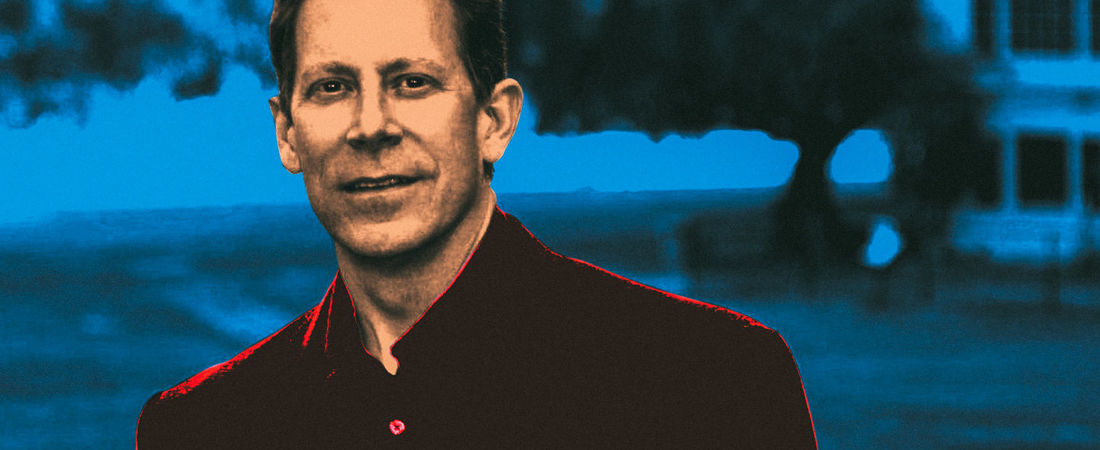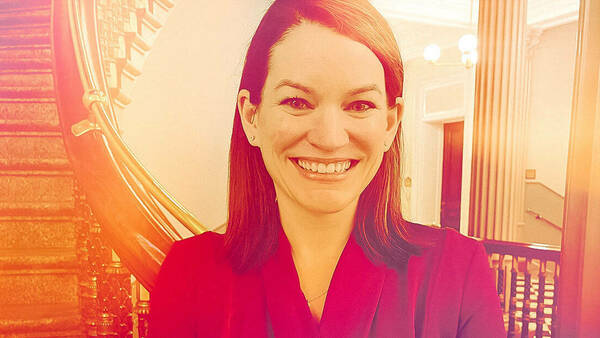Jack Sacco ’78 grew up hearing tales of his father Joe’s experiences on the battlefield in Europe during World War II—seeing a beach for the first time when he stormed the sands of Omaha Beach during the Battle of Normandy, witnessing General George S. Patton’s legendary speeches to the U.S. soldiers before the invasion of France, fearing he and his buddies might not make it through the Battle of the Bulge.
But it wasn’t until Sacco was 12 years old that his father talked about his role in liberating the Dachau concentration camp in Germany.
“He had always shown me his ribbons and medals and swords, but at this point he wanted to show me something, and he said it was very serious,” Sacco recalls. “He showed me a photo album with pictures from when they entered the camp.”
Joe Sacco’s photos showed the scope of death and devastation at Dachau: piles of emaciated corpses, adults and children, lay in cattle cars and on the ground. Those who had survived reached their hands through barbed wire fences towards the American soldiers in gratitude.
“My father told me he showed me the photos for two reasons,” Sacco says. “He told me, ‘The first reason is that at some point in your life, somebody is going to try to tell you that the Holocaust didn’t really happen. It did happen. I was there and I saw it. The other reason is that I want you to never let anything like this happen again.’”
The conversation stayed with Sacco, always in the back of his mind throughout high school, college at Notre Dame, and the years afterwards when he worked as an engineer. “I wondered for years, what could I do to prevent something like that from happening? It took the entire might of the United States Army,” he says.
It was while sharing his father’s World War II stories with friends that Sacco realized how unique they were, and one friend even encouraged him to write a book about the experiences.
“That was when I realized my job wasn’t to go off and do the same thing my father did,” he says. “My contribution was to write about it and let people know what he and his buddies, and all the American soldiers—the Greatest Generation—really accomplished.”
That led to his first book, Where the Birds Never Sing, a tribute to his father’s experiences in the war that was nominated for the 2004 Pulitzer Prize.
Many war veterans find it difficult to talk about their experiences on the battlefield, but Joe Sacco shared his stories with his family, and Jack, a curious child, always asked followup questions. When he decided to write a book about those stories decades later, Sacco conducted extensive interviews with his father and other veterans of the 92nd Signal Battalion.
“My father was always willing to talk about his experiences, but a lot of the other guys told me that they had never really talked about it,” Sacco says. “But they wanted to let it be known, what they went through.”
Sacco’s motivation in writing the book stemmed from these untold stories, and his aim was to convey the emotions that the soldiers felt during their service, so he wrote in the first person, from his father’s point of view.
Sacco included his father’s photos from the liberation of Dachau in the book, as well as other photos from his Army days. Joe Sacco passed away in 2007, but was able to join his son on the promotional tour for the book in 2004. Of that experience, Sacco says, “The greatest thing ever, even after being nominated for the Pulitzer, was to introduce my father and have him come up on stage during the book tour, and to see the people standing in line after the events to shake his hand.”
Now, the book is in the early stages of development for a feature film. Sacco, who was an engineering major at Notre Dame, also wrote the screenplay for the movie and jokes that he switched his major after graduation.
His second book, Above the Treetops, is the true story of the relationship between author William Faulkner and a young neighbor who became like the son he never had, and his next project is a book about the 1977 National Champion Notre Dame football team. In addition to his writing, Sacco travels the country, speaking about both his father’s wartime experiences and the lessons he learned in writing the book.
“These were combat soldiers who had seen entire cities blown up and their friends die in their arms, but when they talked about the concentration camps, that’s when they would tear up—60 years later,” Sacco says. “They saw the cruelty and that’s when they discovered the meaning of their mission, why they left home and went across the ocean and fought a war for people they didn’t know. When my dad was 18, he went off to war, and when I was 18, I went off to Notre Dame. It was a very big difference, but as my mother told me, he was called to do that, and you’re called to tell people about it.”



